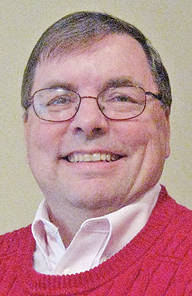
With all the hub-bub over the National Football League these days, it is somewhat refreshing to reminisce about some highlights from the distant past which bring back some pleasant memories of professional football.
It has been over 30 years ago that it happened. But it still remains one of the most unique innovations in professional football playing strategies. He was a 6-2, 370-pound defensive football player who roared into the hearts of America’s sports fans on Monday night, Oct. 21, 1985. On that evening William Perry, nicknamed “The Refrigerator,” became the heaviest man in the history of the NFL to score a touchdown on a designed play. And from that night on the nation watched with enthusiasm as “The Refrigerator” and his self-proclaimed “Fat Attack” took the Chicago Bears from relative mediocrity to one of the best teams of the last part of that decade.
Perry was a defensive player – you know, one who never carries the ball, who is paid mega-bucks to wrap his arms around the ball carrier, not the ball itself, and yet in close and short yardage situations he was called upon to transform himself into an offensive player and carry the ball into the end zone as a human cannonball. I suppose that the coaching staff figured that the “Refrigerator,” with his gigantic mass, would somehow intimidate, overpower his opponents, and score many points for his team.
And while that ploy worked for a while, long enough to gain Perry a few headlines and the like, his success did not last for long, eventually the play was taken out of the playbook, and the Bears went back to a more conventional approach. Mr. Perry, it seems, was a better defensive nose tackle than he was an offensive fullback.
Whether you realize it or not, a similar situation to that one is found in many of our local churches today. In fact, we could simply say outright that in the church (universal) today there is an energy crisis. No, not of oil, gas, and electrical power, but in the lives of those who are part of the church, a lot of wasted energy and unused potential. Pareto’s Principle is hard and fast in the church today (80 percent of the work is being carried out by 20 percent of the people). And, my friends, that not ought so to be.
God has given each of us a challenge in His word to be good stewards of all that He has given to us (Check out 1 Corinthians 4:1), and He has given each of us a lot for which we should be thankful to Him. And by using what He has given to us, we can help the church overcome any energy crises we may face.
In the New Testament we are told that God has given gifts and gifted people to His church (Romans 12, 1 Corinthians 12 and 14, Ephesians 4, and 1 Peter 4:10-11). We are also told that every believer in Christ has been given by God at least one gift to be used in service to the church. The ministry, therefore, is not simply a one-man or one–woman show, but a team effort. Gifts are not given for the purpose of puffing up individuals, or pointing to the individuals with the gift, but rather they are given so that we may serve one another, and also the ultimate goal in the ministry of gifts in the church is so that God will get the glory.
An ad campaign for Google’s Android has a young musician playing Beethoven’s Moonlight Sonata 3rd movement. As his hands fly over the keys a statement is projected, “A piano has 88 keys” then, “Each one is different.” After a few moments, we see “But what if they were all the same?” With that the pianist switches to an identical piano and continues to play. However, regardless of what key he strikes, every note on the re-engineered piano is the same – a middle C. He alternates between the two pianos until the final frame where we read “Be together, not the same.”
The ultimate goal in a football game is to score enough points to win the game. And to accomplish that, a coach may devise unique or creative plays using some strange kitchen appliances in positions that no one is expecting. But any prolonged or repetitive use of those plays will cause the defensive team to catch on and the “Refrigerator” soon will run down. Each team in the NFL has an offensive and defensive unit composed of 11 players on each unit. And as an each individual plays his role in the way it was designed for him to do so, the plays will be executed successfully, the team will score points, and the victory will be won.
And it is likewise in the church. When we all know our gifts, and use them as God intended them to be used, the church will prosper, the ministry will grow, and God will bless. The message of the New Testament is that each person is different; each is given a “note” to play in the grand song of building the church.
The object for each of us then is clear: get in there, discover and use your gifts, and go for the gold by serving others.
Oh, and don’t mention this to your pastor. When he discovers that you are actually serving, he will most likely die from a heart attack, or at least pass out from shock. And don’t take any wooden “refrigerators” (nickels?) along the way, either.
God bless…
Chuck Tabor is a religion columnist for The Times-Gazette and News Journal and a former pastor of Port William UMC.


